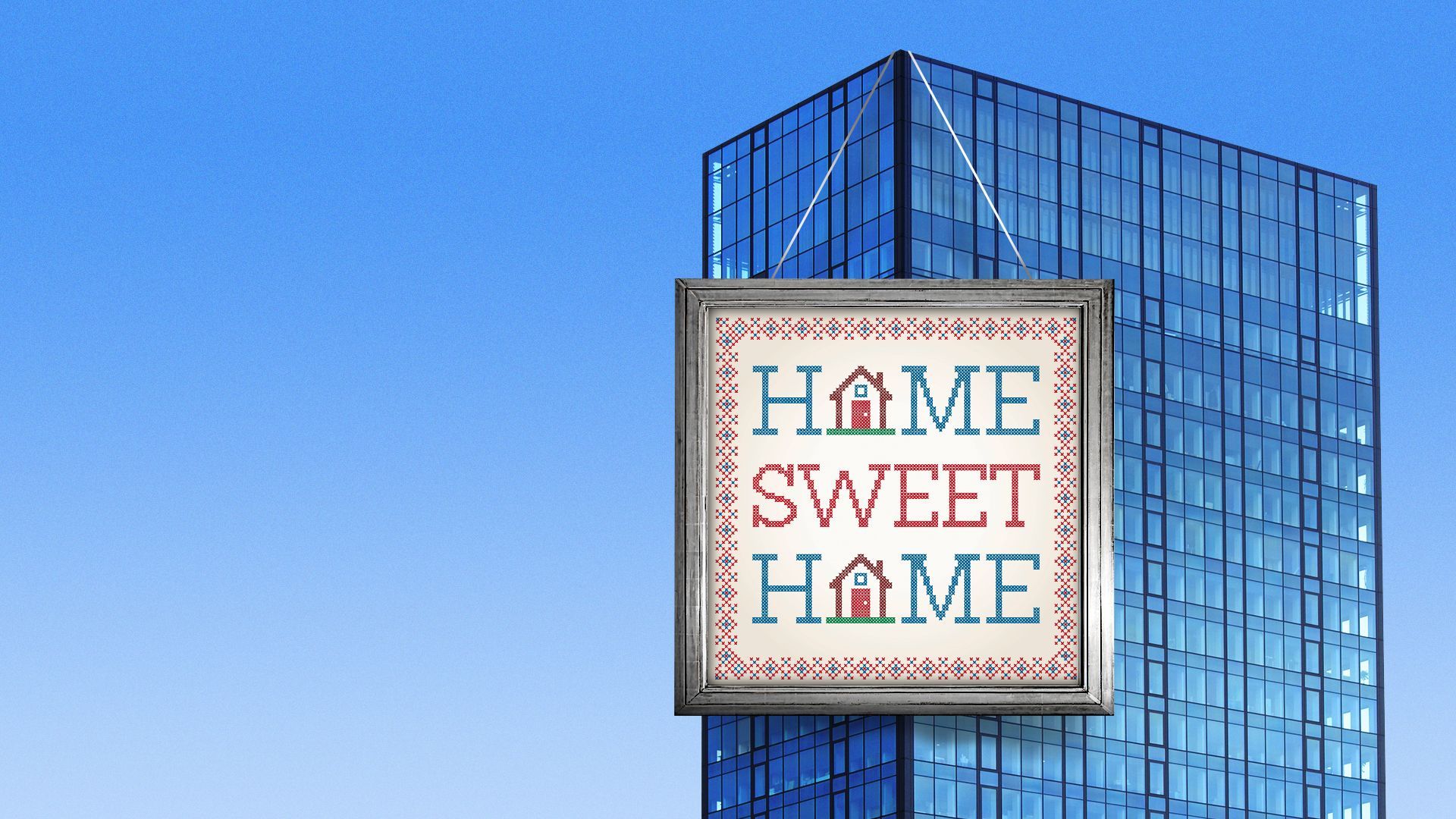Why converting offices to apartments hasn't caught on in Raleigh
Add Axios as your preferred source to
see more of our stories on Google.

Illustration: Annelise Capossela/Axios
As demand for housing in the Triangle surges, office space is sitting empty. But don't expect those cubicles to be converted into condos any time soon.
Why it matters: Rising rents and increasing vacancy rates at offices across the country have led many municipalities and developers to consider converting poor-performing offices into apartments.
- In the Triangle, vacancy rates have increased significantly because of remote work trends, especially in its downtown cores.
State of play: The Triangle — despite growing vacancy numbers in its office buildings and a rapidly increasing population — hasn't seen much action around conversions compared to other large metro areas, Patrick Young, Raleigh's director of planning and development, told Axios.
- He noted existing building codes — like rules around access to natural light, plumbing and fire suppression systems — make it expensive to transition the buildings.
- Additionally, offices in the Triangle have retained their value better than many cities. "These [projects] become more feasible if office values fall," he said.
Details: A recent research paper from the National Bureau of Economic Research found that around 11% of all office buildings in the U.S. could physically handle conversion.
Those same researchers identified five office buildings in Raleigh that could be candidates, the Triangle Business Journal reported:
- The Carolina Trust building at 230 Fayetteville St.
- Capital Bank Plaza at 333 Fayetteville St.
- The Capital Club building at 16 W. Martin St.
- Crabtree Center at 4600 Marriott Dr.
- And 3109 Poplarwood Ct.
Zoom out: In North Carolina, Charlotte has seen the biggest efforts at turning office buildings into apartments, as part of an effort to reinvigorate its uptown core, Axios Charlotte reported.
- A former Duke Energy building in the city is currently being renovated into 450 apartments, after the utility company sold the building.
Yes, but: It's no easy feat turning a building designed for cubicles and hundreds of workers into a building that is attractive to renters or buyers.
- A typical project means an expensive retooling of plumbing (apartments could add hundreds of toilets and showers) and electrical systems, carving out more windows for natural light, and reconfiguring entire sprawling floors of space into more compact dwellings, Axios' Katie Peralta writes.
- The NBER paper found that buildings with too large of floor plans often make conversions too expensive.
The bottom line: Office conversions are expensive and are most financially viable in six metro areas (New York, San Francisco, San Jose, Boston, Washington, D.C. and Denver) where rents are high enough to overcome costs, according to the NBER researchers from New York University and Columbia University.
- For more to happen, cities will need to change zoning regulations, building codes and potentially subsidize projects with tax abatements and debt subsidies, the paper's authors argue.
